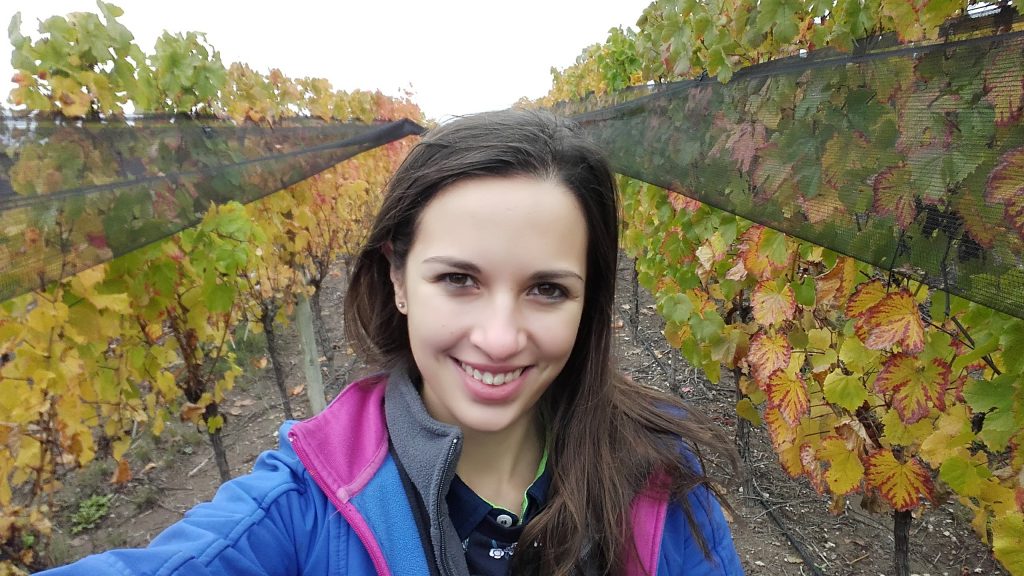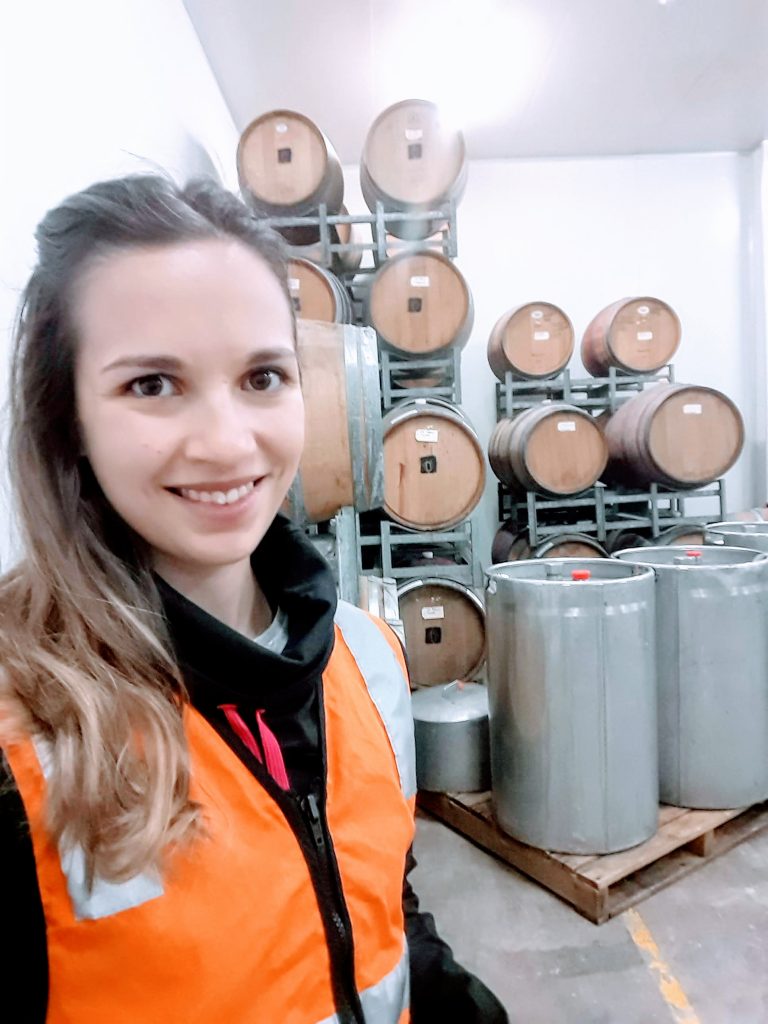Could you tell us a bit about yourself and your academic background?
 Hi, my name is Yanina Giordano, and I’m from Mendoza, a city located in the western central part of Argentina, well-known as a world wine capital.
Hi, my name is Yanina Giordano, and I’m from Mendoza, a city located in the western central part of Argentina, well-known as a world wine capital.
In the wine industry, people approach winemaking from all directions. Some grow up in a winemaking family, but in my case, the influence of growing up in a wine region, our vibrant culture, folklore, and traditions, set my pathway towards the wine industry. Without going too far, at the age of 12, I was 100% sure that I wanted to become a winemaker and I managed to nail that brief!
My first step was to pursue my Bachelor’s Degree in Oenology, Fruit and Horticultural Sciences in the Faculty Don Bosco, Catholic University of Cuyo (Mendoza). Then, at the age of 21, I looked to enhance my theoretical knowledge in wine sciences and build on my professional skills. I joined Trapiche winery (Mendoza) for four vintages to gain hands on experience. This place was a ‘school’ for me because I received a taste of the wine industry, established connections, and set me on my career path. Also, in this winery, I had my first encounter with research where I joined for two vintages, the R&D department, and I acquired valuable experience designing experiments.
After this, I realised I needed to get more skills and knowledge for working in the wine industry. So, I embarked on the Master in Innovative Enology at Basque Country University (Spain). During this time, I also worked as a research assistant in an internship in the Sensory Laboratory of Basque Country University. I helped to develop a protocol for sensorial tasting of Txakoli, a wine from this region in Spain.
During vintage periods I have worked in 6 important wine regions around the world including Argentina, Italy, South Africa, Spain, Australia, and New Zealand. I learned about ‘uncommon’ varietals, sustainable viticulture, and winemaking among the culture and traditions of each place that I lived.
After I finished my Masters and had several experiences around the globe, I developed a deep interest in wine research and experimental approach, which led me to pursue my Ph.D. at the University of Adelaide. I was looking to study in a place focusing on the practical rather than the theoretical perspective. Also, I found a vibrant wine industry rooted in tradition with an eye toward the future in Australia. And here I am! In 2021 I started my Ph.D. at the ARC Training Centre for Innovative Wine Production, the right place to “uncork” my potential!
Could you introduce us to your project and what it involves?
 Brettanomyces bruxellensis is a native yeast that has been isolated from several natural ecological niches and is inextricably linked to a variety of industrial fermented foods, such as wine, beer, cider, kombucha, and bioethanol.
Brettanomyces bruxellensis is a native yeast that has been isolated from several natural ecological niches and is inextricably linked to a variety of industrial fermented foods, such as wine, beer, cider, kombucha, and bioethanol.
In winemaking, the principal factors affecting the sensory properties of wine are the generation of 4-ethylphenol (4-EP), 4-ethyl guaiacol (4-EG), and 4-ethylcatechol (4-EC), which are treated as undesirable aromas and are defined as the “Brett character”.
The presence of Brettanomyces/Dekkera has been and is still regarded as a global concern in the wine industry, especially for the impact and reduction of the organoleptic quality of the wine.
Through my project “Alternatives to sulfur dioxide for controlling Brettanomyces spoilage in wine”, I am investigating innovative strategies to control and treat Brettanomyces, using a holistic approach to fully understand their presence and development in wine and thus, apply the correct treatment.
The aims of my project are:
- To develop innovative strategies for control, monitoring, and risk management of Brettanomyces/Dekkera spoilage in wines.
- To achieve microbiological stability of wines.
- To provide winemakers and the wine industry with an alternative to the use of sulfur dioxide.
- Gather beneficial information and solutions to achieve high-quality wines without “Brett character”.
I look forward to the opportunity of seeing this project grow and the impacts it could have in the wine industry.
What can you see yourself doing in the future?
Thinking about the future is always tricky. However, I have always been very determined and sure of being involved in the wine industry.
I want to continue my career as a researcher and get involved in academia as a university professor. But also, I see myself making my own wine in Australia, using some of the winemaking techniques that I have learned in my past experiences, with a sustainable approach at the core.
